 Please join us in congratulating the UConn undergraduates named below for their significant research and creative accomplishments in spring 2019. Students: if you have an accomplishment to share, please do so using this online form.
Please join us in congratulating the UConn undergraduates named below for their significant research and creative accomplishments in spring 2019. Students: if you have an accomplishment to share, please do so using this online form.
AWARDS
Congratulations to Shaylin Cetegen ’19 (ENG), Eric Lepowsky ’19 (ENG), Leann McLaren ’19 (CLAS), and Hetal Patel ’19 (ENG), the undergraduate recipients of 2019 NSF Graduate Research Fellowships! They are among the 11 UConn students and alumni who won NSF Graduate Research Fellowships this year.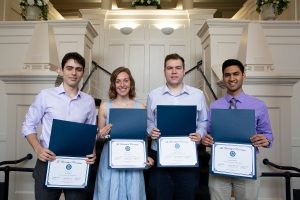
For the first time, four UConn students have been named Goldwater Scholars in a single year. Congratulations to Berk Alpay ’21 (ENG, CLAS), Ariane Garrett ’20 (ENG, CLAS), Sam Markelon ’20 (ENG), and Saurabh Kumar ’20 (CLAS), pictured at right, who were recognized for their outstanding ability and promise, as well as their intention to pursue advanced study and research careers. Learn more about the awardees in this UConn Today article.
PUBLICATIONS
University Scholar and Health Research Program participant Brian Aguilera ’19 (CLAS) was a co-author on a recent publication from the Ghosh and Shapiro groups in the Center for Vascular Biology at UConn Health:
Ghosh, M., Lo, R., Ivic, I., Aguilera, B., Qendro, V., Devarakonda, C., & Shapiro, L.H. (2019). CD13 tethers the IQGAP1-ARF6-EFA6 complex to the plasma membrane to promote ARF6 activation, β1 integrin recycling, and cell migration. Science Signaling 12. doi: 10.1126/scisignal.aav5938
Four undergraduate researchers in Dr. Alexander Jackson’s lab – Eric Beltrami ’19 (CLAS), Brock Chimileski ’17 (CLAS), James Costanzo ’19 (CLAS), and Jacob Naparstek ’18 (CLAS) – were coauthors on this Nature Neuroscience article:
Mickelsen, L.E., Bolisetty, M., Chimileski, B.R., Fujita, A., Beltrami, E.J., Costanzo, J.T., Naparstek, J.R., Robson, P., & Jackson, A.C. (2019). Single-cell transcriptomic analysis of the lateral hypothalamic area reveals molecularly distinct populations of inhibitory and excitatory neurons. Nature Neuroscience 22, 642-656. doi: 10.1038/s41593-019-0349-8
Patrick Briody ’20 (CLAS), Saurabh Kumar ’20 (CLAS), and Derek Pan ’20 (CLAS), all OUR Supply Award recipients, were co-authors on a recent publication based on research conducted in Dr. Joanne Conover’s lab:
Coletti, A.M., Singh, D., Kumar, S., Shafin, T.N., Briody, P.J., Babbitt, B., Pan, D., Norton, E.S., Brown, E.C., Kahle, K.T., Del Bigio, M.R., & Conover, J.C. (2018). Characterization of the ventricular-subventricular stem cell niche during human brain development. Development 2018. http://dev.biologists.org/content/early/2018/09/19/dev.170100
SHARE Award recipient Divya Ganugapati ’19 (CLAS) was the first author on an article based on research in Dr. Rachel Theodore’s Laboratory for Spoken Language Processing:
Ganugapati, D., & Theodore, R.M. (2019). Structured phonetic variation facilitates talker identification. The Journal of the Acoustical Society of America 145. doi: 10.1121/1.5100166
Emily Karr ’19 (CLAS) co-authored two book chapters based on research conducted in Dr. Alaina Brenick’s research group in Human Development and Family Studies:
Brenick, A., Schachner, M.K., Carvalheiro, D., & Karr, E. (2019). (No) space for prejudice! Varied forms of negative outgroup attitudes and ethnic discrimination and how they develop or can be prevented in the classroom. In H.E. Fitzgerald et al. (Eds.), Handbook of Children and Prejudice: Integrating Research, Practice, and Policy, pp. 315-330. Cham, Switzerland: Springer.
Brenick, A., Flannery, K., Karr, E., & Carvalheiro, D. (in press). Send nudes? Evaluating sexting and victimization as related to attachment and rejection sensitivity: Incorporating sexual minority perspectives. In M.F. Wright (Ed.), Recent Advances in Digital Media Impacts on Identity, Sexuality, and Relations. Hershey, PA: IGI Global.
Elliott Wilion ’19 (CLAS) co-authored an article based on research in Dr. James Li’s laboratory:
Wizeman, J.W., Guo, Q., Wilion, E.M., & Li, J.Y.H. (2019). Specification of diverse cell types during early neurogenesis of the mouse cerebellum. eLife 8. doi: 10.7554/eLife.42388
EXHIBITIONS AND SCREENINGS
Spring 2019 included a series of art exhibitions and screenings by the following undergraduate students:
Olivia Crosby ’19 (SFA) – UConn IDEA Grant recipient
Making Welcome: Space, Material, and Human Centered Design
Kenny Glazer ’19 (SFA) – UConn IDEA Grant recipient
Moving Day
Lucian Hatfield ’19 (SFA), Regan Kilkenny ’20 (SFA), Christian Partenio ’19 (SFA) – UConn IDEA Grant recipients
The Color of You
Kat Folker ’19 (SFA) – UConn IDEA Grant recipient
There is Something in the Woods: A Short Horror Film
Isabella Saraceni ’19 (SFA) – UConn IDEA Grant recipient
Anonymous Is A Woman
Blue Wallick ’19 (SFA) – UConn IDEA Grant recipient
Prismatic: Reflections on Transgender and Non-Binary Experiences
PRESENTATIONS
American Astronomical Society Annual Meeting – January 6-10, 2019 – Seattle, WA
Aisha Massiah ’20 (CLAS) – OUR Travel Award recipient
The Search For Galaxies That Host Multiple Type Ia Supernova
Joint Mathematics Meetings – January 9-12, 2019 – Baltimore, MD
Anthony Sisti ’19 (CLAS) – OUR Travel Award recipient
Option Pricing for the VIX and TYVIX Indexes using a Risk-Neutral Historical Distribution
Plant and Animal Genome XXVII Conference – January 12-16, 2019 – San Diego, CA
Alyssa Ferreira ’20 (CAHNR) – OUR Travel Award recipient
Investigation of Strategies to Improve Annotation and Assembly of Conifer Genomes
Olivia Maher ’19 (CLAS) – OUR Travel Award recipient
Expression Analysis of Needle Abscission in the Deciduous Eastern Larch (L. laricina)
Conference on Higher Education Pedagogy – January 30-February 1, 2019 – Blacksburg, VA
Jillianne Garcia ’21 (CLAS) – OUR Travel Award recipient
Anti-“Weathering” Strategies
Emerging Researchers National Conference in STEM – February 21-23, 2019 – Washington, DC
Paulina Frutos ’19 (CLAS, CAHNR) – OUR Travel Award recipient
Study of Wetland Restoration Structures on Microbial Functionality
Eastern Psychological Association Meeting – February 28-March 2, 2019 – New York, NY
Carly Danziger ’20 (CLAS) – OUR Travel Award recipient
Dyadic Worry Induced in a Laboratory Setting Increases Anxiety Between Friends
Christina Flores ’19 (CLAS) – OUR Travel Award recipient
The EEG Mu Rhythm and Temperament in 6- and 12-month-olds
Jeffrey Hunt ’20 (CLAS) & Nathan Rivera ’19 (CALS) – OUR Travel Award recipients
Physiological Concomitants of Dyadic Worry Between Friends
Emmalyn Lecky ’20 (CLAS) – OUR Travel Award recipient
Cognitive Biases for Erotic or Cannabis Stimuli
Kimberly Morais ’19 (CLAS) – OUR Travel Award recipient
Can Discussing Worries Promote Anxiety Contagion?
American Physical Society National Meeting – March 4-8, 2019 – Boston, MA
Meagan Sundstrom ’19 (CLAS) – OUR Travel Award recipient
How do Interactive Physics Learning Environments foster Intellectual Humility?
Society of Behavioral Medicine Annual Meeting – March 6-9, 2019 – Washington, DC
Mareyna Simon ’19 (CLAS) – OUR Travel Award recipient
Using Consumer-Grade EEG Devices to Measure Meditation Progress: A Randomized Controlled Trial
Northeast Writing Center Association Conference – March 30-31, 2019 – Danbury, CT
Alexandra Atherton ’19 (CLAS), Ethan Couillard ’22 (CLAS), Caitlyn Cubilla ’20 (CLAS), Donovan Davino ’20 (CLAS), Mia Dupuis ’19 (CLAS), & Nina Lupo ’21 (CLAS) – OUR Travel Award recipients
Where Writing Meets STEM: Finding Meaning in a Multidisciplinary Academic Center
Connecticut Academy of Nutrition and Dietetics Annual Meeting – April 1, 2019 – Hartford, CT
Caitlyn Sward ’19 (CAHNR) – OUR Travel Award recipient
#EATINGFORTWO: What are People Posting About When They Use this Hashtag in Instagram Posts about Diet, Physical Activity, and Weight Gain During Pregnancy?
Midwest Political Science Association Annual Meeting – April 4-7, 2019 – Chicago, IL
Leann McLaren ’19 (CLAS) – OUR Travel Award recipient
West Indian Diasporic Consciousness: The Case of Hartford, CT
Mary Vlamis ’20 (CLAS) – OUR Travel Award recipient
Torts, Judges, and Juries: Assessing Confidence in the Civil Justice System
Jessica Weaver ’19 (CLAS) – OUR Travel Award recipient
The Feminine Touch: How Female Representation Affects the Legislative Success of Women’s Issues Legislation
Northeast Algal Symposium – April 26-28, 2019 – Salem, MA
Maryam Shahbadi ’19 (CLAS) – OUR Travel Award recipient
Diversity of Terrestrial Green Algae from Chile and Panama, with a Focus on Diplosphaera (Trebouxiophyceae, Chlorophyta)
Pediatric Academic Societies Meeting – April 27-30, 2019 – Baltimore, MD
Maryyam Ali ’19 (CLAS) – OUR Travel Award recipient
Risk Factors and Exposure to Violence in Pediatric Emergency Department Patients
Maria Antony ’19 (CLAS) – OUR Travel Award recipient
Family Perspectives on Accessing Community Resources to Mitigate Toxic Stress
Adrienne Nguyen ’20 (CLAS) – OUR Travel Award recipient
Impact of Undergraduate Research Assistant Program (URAP)
International Society for Autism Research Annual Meeting – May 1-4, 2019 – Montreal, Canada
Kathryn Allen ’19 (CLAS) – OUR Travel Award recipient
Are Variations in Narrative Language Reflected in Early Auditory Processing Via ABR?
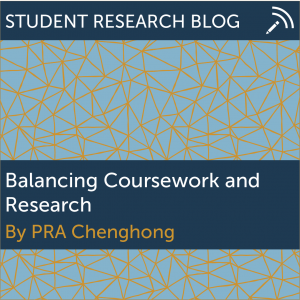 From my experience with research, the more you do, the more you feel you need to do, which makes it important to plan ahead and balance your time between coursework and research so that your academics don’t suffer.
From my experience with research, the more you do, the more you feel you need to do, which makes it important to plan ahead and balance your time between coursework and research so that your academics don’t suffer.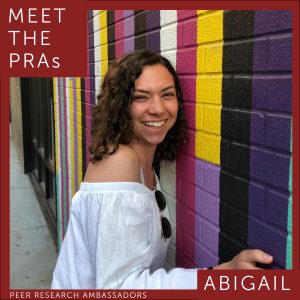
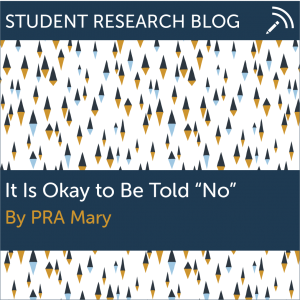
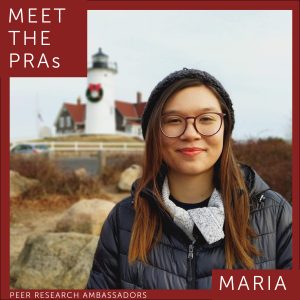
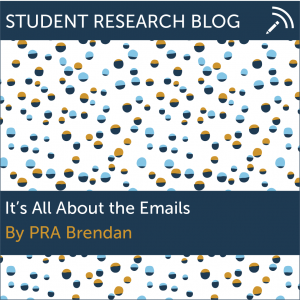
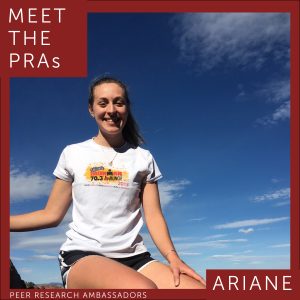
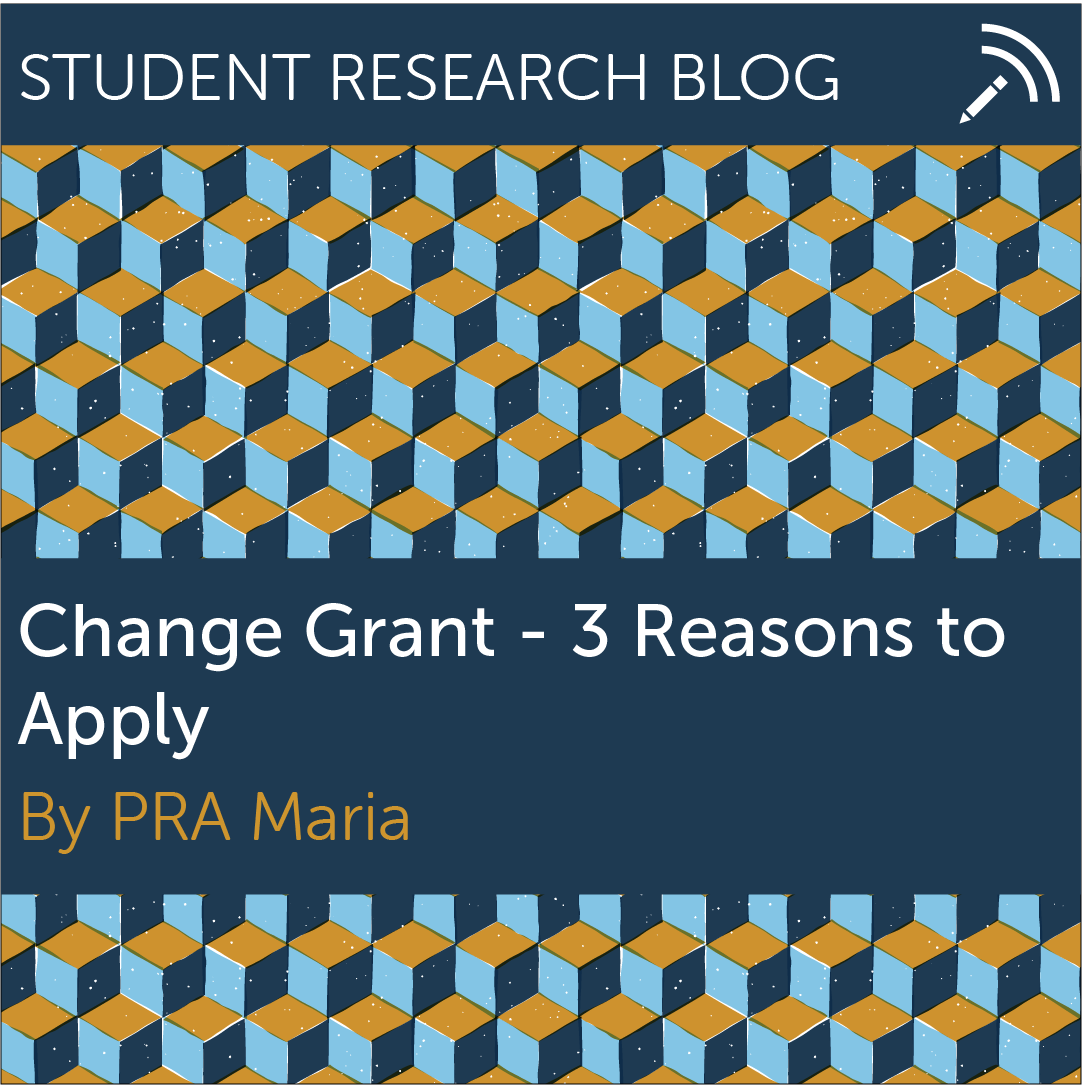 You might think a pre-pharmacy student would want to be working in a lab on drug discovery and most of time you would be right! But with me, things were different.
You might think a pre-pharmacy student would want to be working in a lab on drug discovery and most of time you would be right! But with me, things were different. Please join us in congratulating the UConn undergraduates named below for their significant research and creative accomplishments in spring 2019. Students: if you have an accomplishment to share, please do so using
Please join us in congratulating the UConn undergraduates named below for their significant research and creative accomplishments in spring 2019. Students: if you have an accomplishment to share, please do so using 
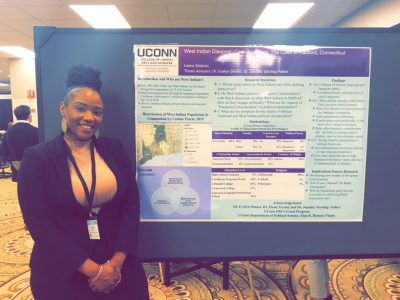
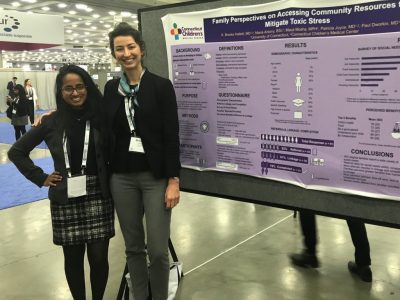
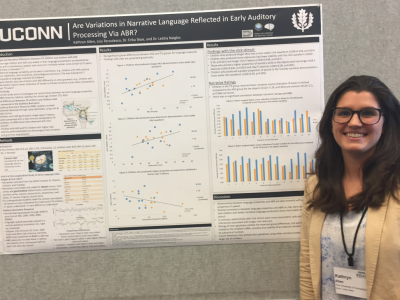
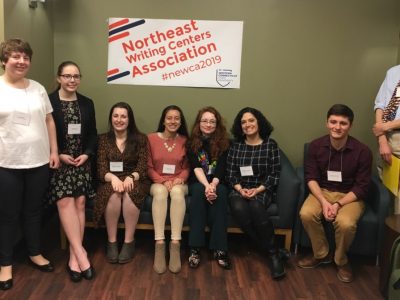
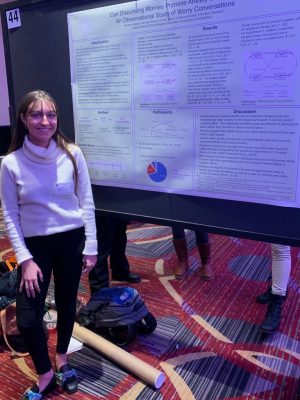
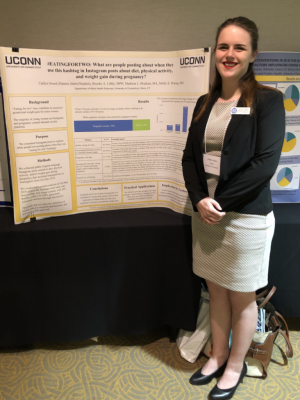
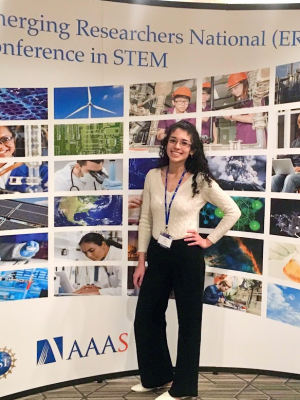
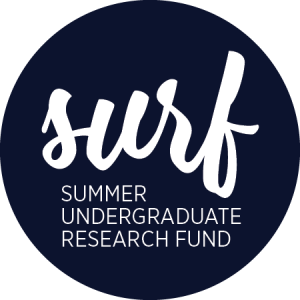 The Office of Undergraduate Research is pleased to announce the selection of 45 undergraduate students to receive SURF Awards in support of their summer undergraduate research projects.
The Office of Undergraduate Research is pleased to announce the selection of 45 undergraduate students to receive SURF Awards in support of their summer undergraduate research projects.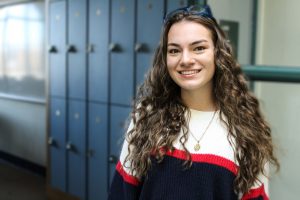
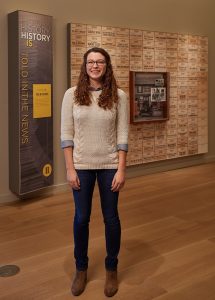
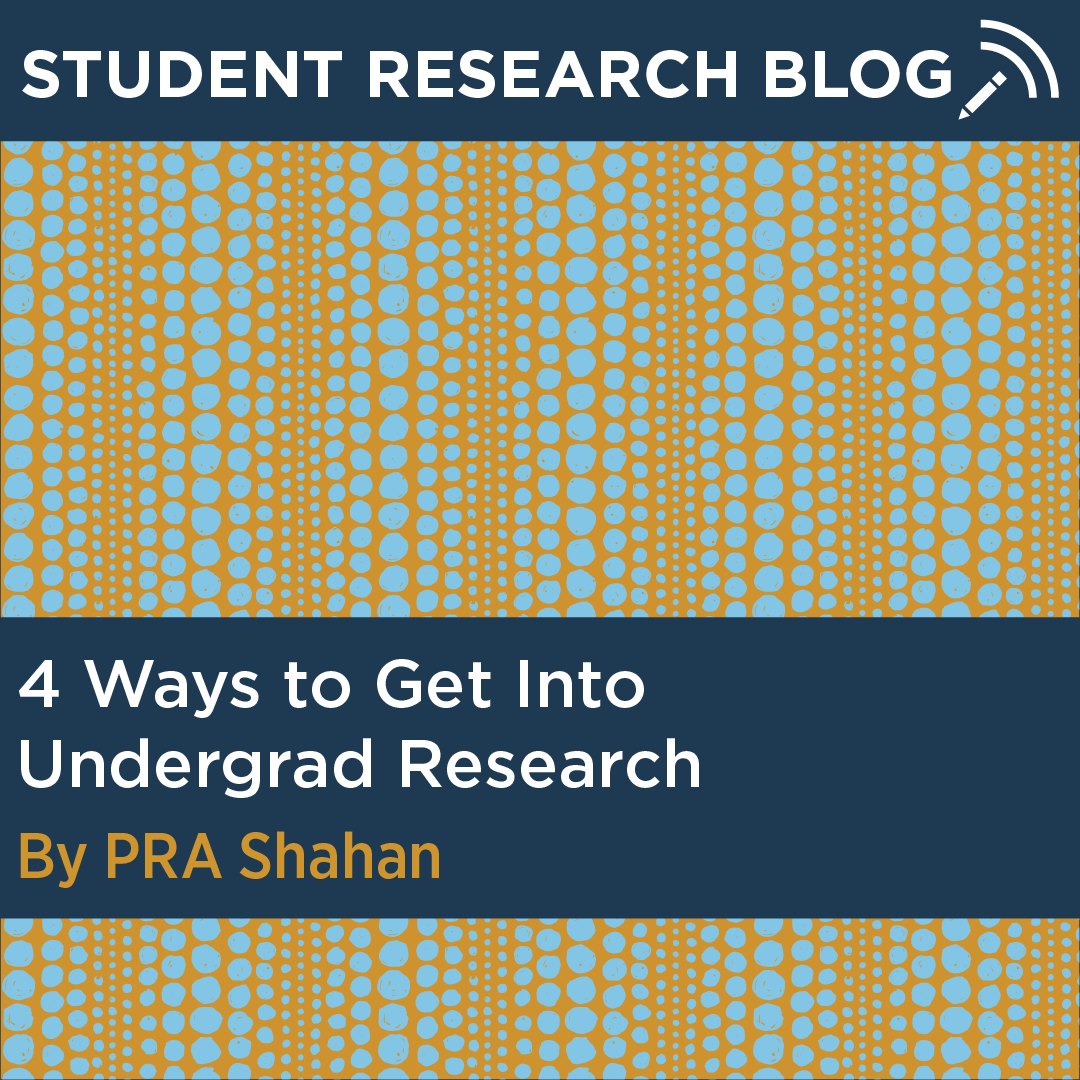 So, you want to get into research, but you probably don’t know where to start? Here are a few tips to give you an idea of what you’re in for!
So, you want to get into research, but you probably don’t know where to start? Here are a few tips to give you an idea of what you’re in for!